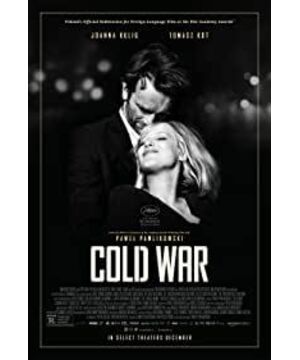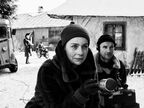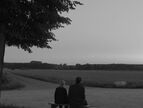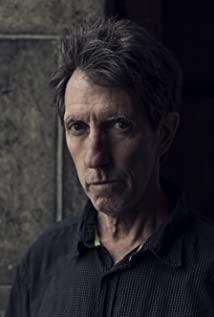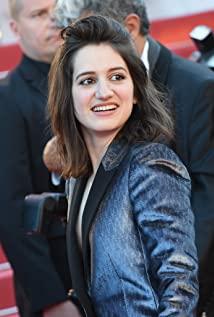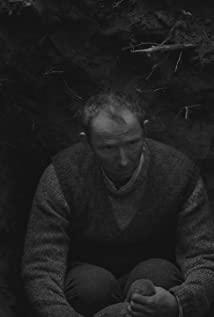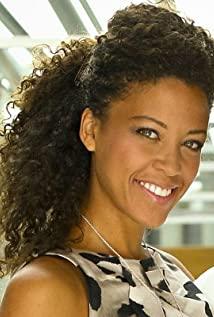It is said that when "Cold War" was selected into the main competition unit of Cannes this year, some film critics said that when they saw the name "Cold War" and its director, they knew that they would win the award. Sure enough, "Cold War" ended as expected. In the fierce competition to win the "Best Director Award".
After all, the director of "Cold War" was Paviu Pawlikowski, who made his name in "Sister Ida" four years ago. In 2014, "Sister Ada" was released, this black and white film in retro format, cut into politics, race, religion and gender issues from the perspective of a young nun, won the best foreign language film award at the Oscars the following year, This is proof of Pawlikowski's mastery over black and white images.
This time, he brought a new film "Cold War" that echoes "Sister Ida". The story takes place in post-war Poland, and it is also a black and white film. A couple who have been entangled for many years.
If you take away the background of the times, this is an ordinary love film with a bit of "work", and it is no more heartwarming than the love story of you and me. However, the foundation of Director Pao lies in being able to turn a love story that can easily become mediocre and sensational into a work of art full of music and video aesthetics, and being able to win the Best Director Award is probably also because of being a writer and director.” The ability to turn corruption into magic".
The film opens with an immersive, reverberating Polish folk song. The close-up of the camera moves from the hands of farmers playing musical instruments to the faces of these natural musicians. The black and white images create a faint sense of distance, more like a private conversation. remember.
The encounter between the heroine Zura and the hero Victor is also in a little girl's sobbing folk song. Love begins naturally, with undisguised lust like unpolished folk songs.
A chorus play succinctly explained the background of the times: in Poland in the 1950s, everything moved towards the ideology of the Soviet Union, and the folk song troupe became a "cultural art troupe". The girls who originally sang love, nostalgia and joy sang in one Played the lyrics and songs of praise. Everyone sat upright and applauded, but no one would run to Victor again and tell Victor, "This is the most beautiful day of my life."
The artist Viktor, like the Czech novelist Milan Kundera, decided to escape from his homeland in Eastern Europe, here and now, to his spiritual hometown - Paris. The 13-year entanglement of ons and offs begins with two people's different attitudes towards "exile".
In fact, after watching the movie, I realized that politics is both important and unimportant, and the Cold War may just be a big background and a metaphor. The ideology, of course, haunts like a ghost, reminding the viewer in details of how far apart this couple is from the situation we face today, such as in a meeting trying to "politicize" a folk song troupe, Victor. 's female partner expressed dissent, and she has never been seen since, and we didn't even know her name in time. But on the other hand, the "Cold War" is more like an externalized metaphor for the plight of love. It is the current situation that forces a pair of lovers to separate, but it is not necessarily the Cold War itself that separates them from each other.
In 1954, Zura took a detour to Paris to meet Victor in exile. They were finally free to be together, but then what?
I noticed a detail, the bar where Zura went to sing, used the name of "Eclipse" , one of Antonioni's trilogy , called L'eclipse.
"Eclipse" is the "alienation" of people in the industrial society of Western Europe after the war, and no matter how determined the feelings are, they also move towards nothingness and alienation. And Zura and Victor, who performed together in "Eclipse", were "alienated" by Western Europe and Eastern Europe, and rifts were formed unconsciously. He fled his country, leaving everything about the Soviet Union, Poland, and ideology behind him, embracing his nascent and costly freedom, but still unable to escape his loneliness; She plays a "Polish girl" who is unfamiliar to herself in the environment of her. Even if she releases a record and enters the circle of artists, she is not happy at all.
The two go to the "Eclipse" bar again, Victor is chatting with his friends, and Zura is bored. Get yourself half-drunk, rush onto the dance floor and jazz around with strangers around your waist, then jump on the table to "demonstrate" to Victor. Both fell into the confusion of "I thought they would be happier".
As the old saying goes, "It's easy to get along with each other", and there are thousands of interpretations for thousands of couples. For Zura, suspicion, inferiority complex, and insecurities are magnified in an unfamiliar environment, and Victor has never had a mental or material safety net to give her the bottom line. Zura lay on the bed and said calmly "I love you with all my strength". However, "doing your best" may not be the best emotional state.
Limited to the rhythm of the film, the director did not show much about Zula's alienation and discomfort after he escaped to Paris and was with Victor, making Zula look like a neurotic who has a fear of intimacy. The more he has it, the more he feels. Depressed and restless. But we can more or less guess their mental journey.
She loves too wildly, and what does not meet expectations is not love; he loves too implicitly, and he cannot express as delicately to his lovers as he does to music. Maybe this kind of love is not for the purpose of cultivation, but for burning life. Only then will there be a risk of crossing the border in the future. Personal destiny is too weak in front of the home country. They wander with idealism until they choose to come to an end.
When I watched "Cold War", I couldn't help but think of Byron's "Spring Dies"——
If I should meet thee
After long years,
How should I greet thee?
With silence and tears.
If I see you again, after years? How should I congratulate you? With tears, with silence.
The photography of "Cold War" is indeed commendable. The stunning black-and-white image aesthetics in "Sister Ada" reappears. The picture style of "Cold War" is in the same vein as that of "Ada", and the exquisite fixed shots are full of poetic gaze. Compared with "Sister Ida", which is gray in tone, the black and white images of "Cold War" are more contrasted and thicker.
Equally amazing is the rhythm of the film, which fits seamlessly with the picture. The long historical narrative is divided into eight paragraphs in the form of chapters, intertwined with the rich musical elements of the whole film (from folk songs, chansons to piano, jazz), and jointly create the film's calm rhythmic beauty and immersive audio-visual experience.
The narration is completely spread out by audio-visual language. Long shots one after another are connected with high-density information. Every transition is clean and neat, obeying the almost sharp rhythm of the whole film.
However, such an image style also leads to the simplification of the narrative and the restraint of emotions brought about by the simplicity of the narrative. It is easy to ignore the emotional tension of the undercurrent when watching the film for the first time.
There are actually quite a few films like "Cold War" that use audiovisual language to narrate. For example, Jiamusu won the "Camera Golden Award" at the Cannes Film Festival in 1984, his debut feature film "A Stranger in Paradise" , which is also a strong sense of form. A black-and-white film that greatly simplifies the narrative. But "Stranger Things in Paradise" is about the tug of identity between Hungarian immigrants and mainstream American culture, and it's a story about how young people face their own loneliness and confusion. Each scene is one shot to the end, and the characters move very little in the frame of the shot. This minimalist narrative technique greatly adds to the film's indifferent and alienated atmosphere.
The difference is that the core of "Cold War" is a fiery love story, and the simplicity and flatness of the narrative to some extent weakens the foreshadowing and foiling of emotions, and it seems to be superficial. I look forward to more depictions of the hearts of both men and women, but it is always blank. Even if the last credits play "Dedicated to my fathers" and turn "Cold War" into a personal lyric poem, it still makes me skip the aftertaste. Sorry.
Perhaps film critics in Western Europe are still very excited about the background of the story and the political atmosphere that "Cold War" presents, but for a Chinese audience like me, the Soviet Union's paradigm is too familiar. , the dissolution of personal will by power, the fluctuation of personal destiny with the times, etc., which also made me unknowingly ignore the special background of the "Cold War" when watching the film, and shifted from the grand narrative to the individual, focusing on On the hearts of the two protagonists and their tortuous love experiences.
But the ending brought back my fondness for the film, and it's hard for me to think that the ending of the second "Cold War" would be as beautiful and touching as Pa's existing ending.
The camera movement returned to stillness again. Several empty mirrors echoed with the beginning, rendering the solemn and tragic atmosphere to the extreme. In the last fixed long shot, they sat silently, waiting for eternity to come. The backs of the two people side by side gradually dimmed with the twilight, and they closed their eyes after more than ten years of ups and downs.
The scenery on the other side is not necessarily better, but if you were there, everything might be different.
(This article is the first adventure movie)
View more about Cold War reviews


